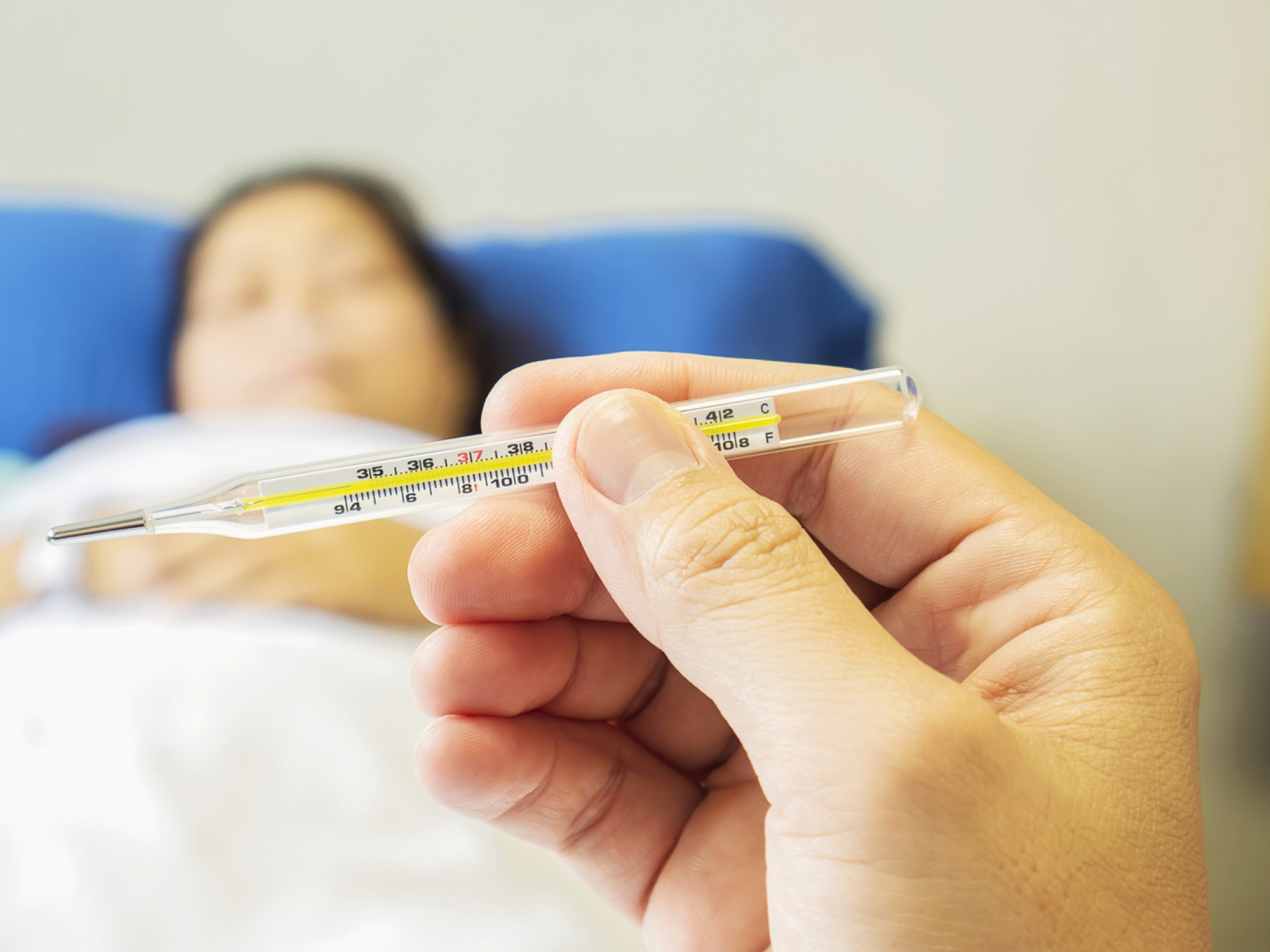Dengue fever is a viral illness transmitted by mosquito bites from mosquitoes carrying one of the four types of dengue virus (DENV). It is most prevalent in tropical and subtropical regions, including parts of Asia, Africa, the Pacific Islands, Central, and South America. Dengue fever is not contagious and primarily spreads from infected pregnant women to their unborn children. The elderly and children are commonly affected. Each year, millions are infected globally, making dengue a significant public health concern. Factors such as climate change, urbanization, and increased human mobility contribute to its rapid spread. Proper care, management, and community awareness are crucial for prevention.
What are the Signs and Symptoms of Dengue?
While most cases of dengue are mild, severe symptoms can occasionally develop and be life-threatening. The primary symptom is high-grade fever (40°C/104°F), which usually appears 4-10 days after infection and lasts for 2-7 days. Recovery generally occurs within 1-2 weeks. Additional symptoms include:
- Nausea
- Vomiting
- Muscle and joint pain
- Severe headache
- Rash
- Swollen glands
- Pain behind the eyes
What are the Causes of Dengue Fever?
The dengue virus belongs to the flavivirus family, which includes other vector-borne viruses like West Nile, yellow fever, and Zika. Dengue is primarily spread through bites from Aedes mosquitoes, which acquire the virus from infected individuals and transmit it to others. After biting an infected person, the virus replicates in the mosquito’s midgut before spreading to other tissues, including the salivary glands. The time from ingestion of the virus to its transmission to a new host is known as the extrinsic incubation period (EIP), typically 8-12 days at temperatures of 25-28°C. The EIP can vary based on temperature fluctuations, viral genotype, and viral load. Once infected, mosquitoes can transmit the virus for the remainder of their lives.
Transmission of Dengue Virus
Dengue virus can be spread by symptomatic, pre-symptomatic, or asymptomatic individuals when a mosquito bites them. The virus can be transmitted from a human to a mosquito two days before symptoms appear and up to two days after the fever subsides. The viremic phase in humans typically lasts 4-5 days but can extend up to 12 days.
Maternal Transmission
While mosquitoes are the primary vector, dengue can also be transmitted from a pregnant mother to her baby. This maternal transmission can cause fetal distress, premature birth, and low birth weight.
Other Modes
Rarely, the virus can spread through blood transfusions or organ donations.
Stages of Dengue Fever
Dengue fever progresses through three phases: febrile, critical, and recovery.
- Febrile Phase: Characterized by a sudden onset of high fever lasting 2-7 days, often with symptoms such as sore throat, headache, myalgia, arthralgia, conjunctival infection, nausea, vomiting, and anorexia. A blanchable macular rash may appear within 1-2 days of fever onset.
- Critical Phase: The temperature drops, and capillary permeability increases, usually lasting 1-2 days. This phase is marked by leukopenia, a drop in platelet count, and elevated hematocrit levels. Without treatment, severe cases may lead to shock, organ dysfunction, hemorrhage, or disseminated intravascular coagulation.
- Recovery Phase: Extravascular fluids are reabsorbed, and hemodynamic status improves, with increased platelet and white blood cell counts. Bradycardia (abnormal heart rhythm) may occur.
How to Diagnose Dengue Fever?
Dengue fever is diagnosed using molecular and serological tests. Although rapid diagnostic tests are available, their sensitivity varies by virus serotype.
Nucleic Acid Amplification Test (NAAT): Detects the RNA of the dengue virus in blood, serum, or plasma, helping identify the specific serotype. No further tests are needed if NAAT is positive.
Non-Structural Protein 1 (NS1 ELISA) Test: Detects the NS1 antigen, a protein produced by the dengue virus, in blood samples. This test is most effective within the first 7 days of infection.
IgM ELISA Test: Recommended after symptoms appear on day 7 or later. IgM antibodies can be detected for up to 3 months or more after infection.
IgG Test: Detects antibodies from dengue and other flavivirus infections. It is not recommended for acute dengue diagnosis.
How to Prevent Dengue Fever?
Currently, no vaccine is available for dengue fever, making prevention essential. Key measures include:
- Protecting yourself from mosquito bites.
- Wearing loose, long-sleeved clothing.
- Using mosquito nets while sleeping during the day.
- Installing window screens and using repellents containing DEET, IR3535, or picaridin.
- Preventing mosquito breeding by managing and disposing of waste properly.
- Cleaning and covering water storage containers.
- Applying insecticides to outdoor water storage.
Dengue fever can be managed by adhering to preventive measures, as it spreads primarily through vectors. Innovative vector control strategies, such as releasing mosquitoes infected with the Wolbachia bacterium (which inhibits viral transmission), and the development of effective diagnostic tests and vaccines could significantly impact the fight against dengue.


